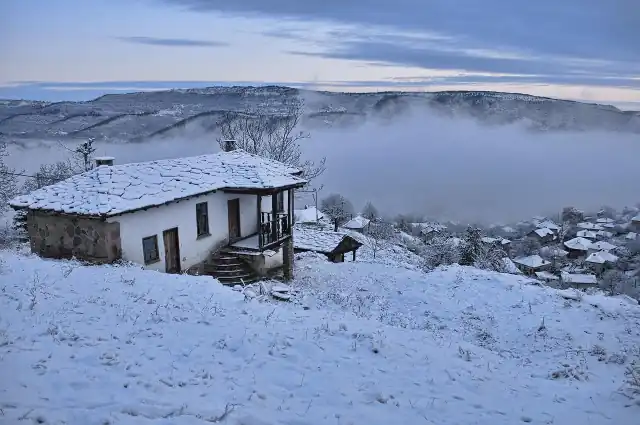
Sofia, Bulgaria – Bulgaria is set to experience a sharp drop in temperatures later this week, with forecasts predicting extreme cold and heavy snowfall across several regions.
The National Institute of Meteorology and Hydrology (NIMH) has confirmed that a significant cold front is moving across the country, bringing with it subzero temperatures and hazardous winter conditions.
Meteorologist Anastasia Stoycheva from NIMH stated that the cold snap, which has already begun affecting parts of Bulgaria, will intensify as the week progresses.
“We are expecting temperatures to drop to around minus 15 degrees Celsius, with some areas possibly experiencing even colder conditions,” Stoycheva said.
She added that the Arctic air mass gripping the region is expected to persist well into the end of February.
Snowfall and Strong Winds Create Hazardous Conditions
Snow has already started to accumulate in several parts of Bulgaria, particularly in the northern regions. The heaviest snow cover was reported in Montana on Monday morning.
While no weather warnings have been issued for the area yet, conditions could worsen in the coming days, leading to official alerts.
Stoycheva warned that the combination of snowfall and strong winds in Northeastern Bulgaria and mountain passes could create blizzard-like conditions, reducing visibility and making travel dangerous.
“Wind gusts will contribute to drifting snow, which may lead to road closures and transportation disruptions,” she noted.
Given the severity of the conditions, authorities are considering issuing a yellow code warning, a classification used to alert the public of potential risks to safety due to severe weather.
Coldest Days Still Ahead
Forecasters predict that the lowest temperatures will be recorded towards the end of the week, with some areas potentially experiencing temperatures lower than the -15°C to -16°C that Bulgaria saw earlier this month.
Daytime temperatures are expected to remain below freezing, even in the southern regions where the impact of the cold front is usually milder.
“Negative maximum temperatures will persist on certain days, which means that even during the warmest parts of the day, conditions will remain extremely cold,” Stoycheva explained.
Authorities are urging citizens to take precautions against the harsh winter weather. The Ministry of Transport has advised drivers to equip their vehicles with winter tires and chains, especially those traveling through mountainous areas.
Meanwhile, emergency services have been put on high alert to respond to potential weather-related incidents.
Public Safety Measures in Place
With the freezing temperatures and heavy snowfall expected to impact daily life, municipal authorities are taking steps to minimize disruptions.
Cities and towns across Bulgaria are preparing for road salting operations to prevent ice formation and ensure safe passage for vehicles and pedestrians.
Residents are advised to dress warmly, avoid unnecessary travel, and check weather updates regularly. Vulnerable groups, including the elderly and those with chronic health conditions, are urged to stay indoors and seek assistance if needed.
As Bulgaria braces for its coldest spell of the season, meteorologists continue to monitor the situation closely.
Further weather advisories may be issued as conditions evolve, with the possibility of more widespread disruptions due to the severe cold and snowfall.
